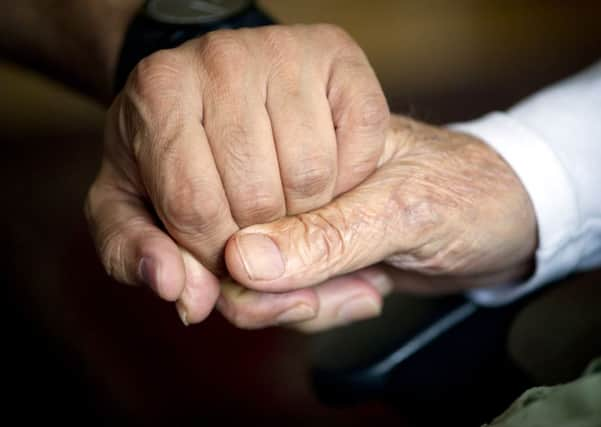Health service struggling to meet Scottish Parkinson’s needs


A report from the charity Parkinson’s UK in Scotland reveals the true extent of the major issues people with the illness face in accessing the support they need.
Findings include the fact that Scotland should have more than 40 specialist nurses but at present there are only 30 available and the 12-week waiting time target for care has been missed in all mainland health boards.
Advertisement
Hide AdAdvertisement
Hide AdThe charity’s report, backed by leading clinicians, makes 13 recommendations that need urgent action if Scotland is to meet the health and social care needs of the growing Parkinson’s population.
About 12,400 people in Scotland currently have a Parkinson’s diagnosis - and that number is predicted to increase by 40 per cent within the next 20 years.
Parkinson’s is a complex incurable neurological condition that affects every aspect of daily living.
The report highlights unacceptably long waiting times for diagnosis and the nationwide shortfall in Parkinson’s nurses as major concerns.
The report recommends the establishment of multi-disciplinary teams to provide a more holistic, comprehensive and person-centred approach to Parkinson’s care.
Annie Macleod, Scotland Director at Parkinson’s UK, said: “This is the first time we’ve shone such a searching spotlight on Parkinson’s services in every part of Scotland.
“We recognise people providing Parkinson’s care are doing an incredible job, but we’ve been challenged by people with Parkinson’s to discover whether their individual experiences are unique or part of a bigger and worrying picture.
“Sadly, we’ve found problems and failings are not isolated incidents but are part of a Scotland-wide under-provision of services.
Advertisement
Hide AdAdvertisement
Hide Ad“All but one Health Board - Western Isles - has inadequate specialist Parkinson’s nurse provision. In two heavily populated areas – Lanarkshire and Lothian – there are half the number of nurses that there should be.
“In Orkney and Shetland, there are no local Parkinson’s nurse at all.”
Opposition parties were quick to lay the blame for the crisis at the Scottish Government’s door.
Labour’s Shadow Health Cabinet Secretary, Monica Lennon MSP, said it was a “damning report” which shines a light on Scotland’s social care crisis.
She added: “Despite the hard work and dedication of staff, it is impossible for just 30 specialist Parkinson’s nurses to give the 12,400 people living with the condition in Scotland the level of care they need.
“People were promised they’d be seen within 12 weeks of being first referred, but in reality some have waited for 40 weeks or longer. That is simply not acceptable.”
Parkinson’s is a degenerative neurological condition, for which there currently is no cure.
“The main symptoms of the condition are tremor, slowness of movement and rigidity.
Advertisement
Hide AdAdvertisement
Hide AdEvery week 30 people in Scotland are told they have Parkinson’s.
Tory health spokesperson, Miles Briggs, said: “The lack of Parkinson’s nurses, missed waiting times target and the complete lack of provision in certain areas of Scotland is unacceptably frustrating and daunting for Parkinson’s sufferers.
“It’s clear that the SNP’s mismanagement of our health and social care has led to systemic delays, lack of services and lack of support for all patients.”
A Scottish Government spokesperson said: “We welcome this report from Parkinson’s UK and will consider it closely as we continue to work with the neurological community to develop Scotland’s first National Action Plan on Neurological Conditions.
“The public consultation on our draft plan closes on Friday and we will publish our final plan later this year.”